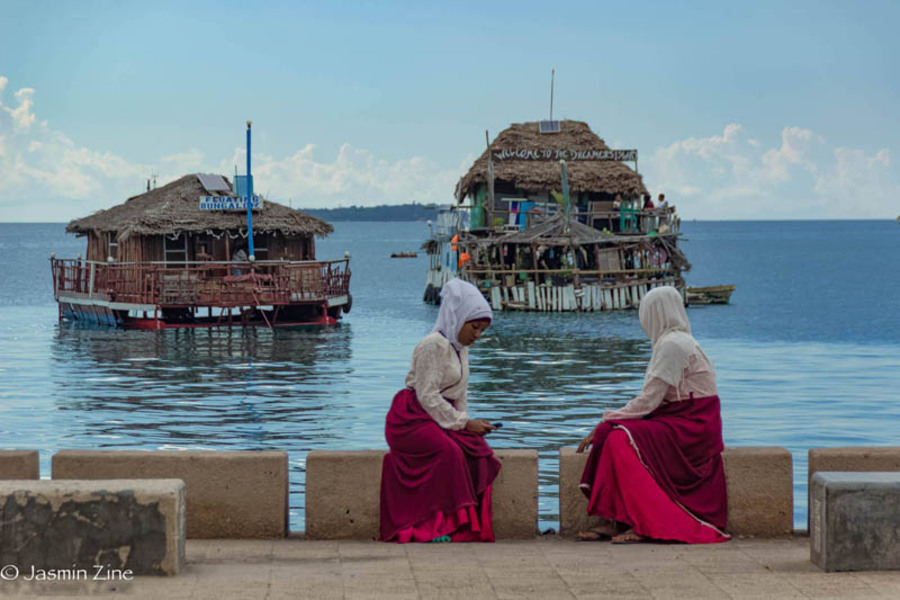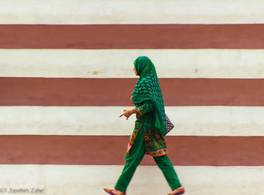Courses and Workshops
Index / Activities / Courses and Workshops / Conversations about Islamophobia and gender with Jasmin Zine
Conversations about Islamophobia and gender with Jasmin Zine
July 03, 2018From 10:00 a.m. to 2:30 p.m.
MADRID
Casa Árabe Ambassadors’ Hall (at Calle Alcalá, 62). First floor.
From 10:00 a.m. to 2:30 p.m.
Free entry after registering.
In order to take part, you must fill out this form.
In English, with no translation.
This seminar, organized jointly by the Group for Analysis on Islam in
Europe (GRAIS) at the Universidad Complutense de Madrid and Casa Árabe,
proposes a debate between the Canadian professor and Spanish activists
and scholars.
The reports on Islamophobia produced in recent years by organizations which work to deal with discrimination make clear the different forms of violence endured by Muslims in the Spanish State, regardless of their gender. Though many variables are used to analyze this and calibrate the impact, the fact that women are the most affected by Islamophobia is indisputable today.
Likewise, in academia this centrality of Muslim women in Islamophobic policies and activities has undergone analysis, pointing out how the characterization of these women as oppressed beings who need to be saved from Islam forms the central axis of Islamophobia itself. As a result, stating that Islamophobia is riddled with the matter of gender goes beyond just pointing out women as its main victims, but also involves underlining the instrumentalization of the oppression of Muslim women to legitimize Islamophobia in all of its forms.
Canadian professor Jasmin Zine was one of the first to explore the relationship between Islamophobia and gender from this perspective. Her analyses of “gender-based Islamophobia,” as the term was coined by herself, point out, on the one hand, the specific forms of ethno-religious, racial discrimination which work specifically against Muslim women and, on the other, take a closer look at the gender-based discrimination which characterizes the different forms of domination exerted over the Muslim population as a whole.
This seminar, organized jointly by the Group for Analysis on Islam in Europe (GRAIS) at the Universidad Complutense de Madrid and Casa Árabe, is an attempt to delve further into these topics, proposing a debate between Jasmin Zine and activists and scholars from Spain. The idea is to analyze and discuss the possible implications of gender-based Islamophobia in the context of Spain, but on the basis of the Canadian perspective.
This debate is intended for a specialized audience.
Likewise, in academia this centrality of Muslim women in Islamophobic policies and activities has undergone analysis, pointing out how the characterization of these women as oppressed beings who need to be saved from Islam forms the central axis of Islamophobia itself. As a result, stating that Islamophobia is riddled with the matter of gender goes beyond just pointing out women as its main victims, but also involves underlining the instrumentalization of the oppression of Muslim women to legitimize Islamophobia in all of its forms.
Canadian professor Jasmin Zine was one of the first to explore the relationship between Islamophobia and gender from this perspective. Her analyses of “gender-based Islamophobia,” as the term was coined by herself, point out, on the one hand, the specific forms of ethno-religious, racial discrimination which work specifically against Muslim women and, on the other, take a closer look at the gender-based discrimination which characterizes the different forms of domination exerted over the Muslim population as a whole.
This seminar, organized jointly by the Group for Analysis on Islam in Europe (GRAIS) at the Universidad Complutense de Madrid and Casa Árabe, is an attempt to delve further into these topics, proposing a debate between Jasmin Zine and activists and scholars from Spain. The idea is to analyze and discuss the possible implications of gender-based Islamophobia in the context of Spain, but on the basis of the Canadian perspective.
This debate is intended for a specialized audience.
SCHEDULE
10:00 -10:30 a.m. – Opening conference titled “the gender-based nature of Orientalism and Islamophobia”
10:30 -11:30 a.m. – Intersectionality and Islamophobia
Sara Jaadr (Association of Muslim Girls of Spain)
Daniel Ahmed Said (Universidad Autónoma de Madrid/Nasij)
Virtudes Téllez (University of Castilla-La Mancha)
Moderated by: Laura Mijares (Universidad Complutense de Madrid)
11:30 a.m. -12:00 p.m. – Break
12:00 -1:00 p.m. – Fighting Islamophobia
Aurora Ali (a Technician in the project “Luchemos contra la Islamofobia” in Malaga)
Alfonso Casani (Islamic Culture Foundation)
Hicham Oulad Mhammed (journalist, AJME, FEMME)
Moderated by: Johanna M. Lems (Universidad Complutense de Madrid)
1:00 - 2:00 p.m. – Debate
10:00 -10:30 a.m. – Opening conference titled “the gender-based nature of Orientalism and Islamophobia”
10:30 -11:30 a.m. – Intersectionality and Islamophobia
Sara Jaadr (Association of Muslim Girls of Spain)
Daniel Ahmed Said (Universidad Autónoma de Madrid/Nasij)
Virtudes Téllez (University of Castilla-La Mancha)
Moderated by: Laura Mijares (Universidad Complutense de Madrid)
11:30 a.m. -12:00 p.m. – Break
12:00 -1:00 p.m. – Fighting Islamophobia
Aurora Ali (a Technician in the project “Luchemos contra la Islamofobia” in Malaga)
Alfonso Casani (Islamic Culture Foundation)
Hicham Oulad Mhammed (journalist, AJME, FEMME)
Moderated by: Johanna M. Lems (Universidad Complutense de Madrid)
1:00 - 2:00 p.m. – Debate
Zine is a professor of Sociology and the Muslim
Studies Option at Wilfrid Laurier University, in Canada. Her
publications include numerous articles in journals about Islamic
feminism and Muslim women’s studies, as well as Muslims and education in
the Canadian diaspora. Her most notable books include: Canadian Islamic
Schools: Unraveling the Politics of Faith, Gender, Knowledge and
Identity (2008, University of Toronto Press), Islam in the Hinterlands:
Muslim Cultural Politics in Canada (2012, University of British Columbia
Press) and Muslim Women, Transnational Feminism and the Ethics of
Pedagogy: Contested Imaginaries in post-9/11 Cultural Practice (2014,
Routledge Press), co-published with Lisa K. Taylor. She has completed a
national study financed by the Social Sciences and Humanities Research
Council (SSHRC) on the impact of 9/11, the war against terror and the
discourses and policies of domestic security on young Muslims in Canada.
As an educational consultant, she has developed acclaimed academic
materials that deal with Islamophobia and anti-Muslim racism and has
worked as an advisor for the Office of Democratic Institutions and Human
Rights at the Organization for Security and Cooperation in Europe
(ODHIR/OSCE), the Council of Europe, and the United Nations Educational,
Scientific and Cultural Organization (UNESCO) to develop international
guidelines for educators and lawmakers on fighting Islamophobia and
discrimination against Muslims. She has a PhD in Sociology and Equality
Studies from the University of Toronto.


